Britain & Ireland
The Tudors continue to fascinate and some of their story is told here along with the other dynasty of the period the Stuarts. Alongside those resources are the podcasts on the ideas that transformed British society during that period and created a United Kingdom for the first time. The industrial revolution is explored through poetry as well as technology. Religious collapse, change and diversity are all themes explored in this section. Read more
Sort by:
Date (Newest first) | Title A-Z
Show:
All |
Articles |
Podcasts |
Multipage Articles
-
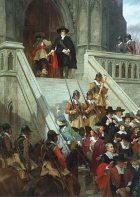
London and the English Civil War
ArticleClick to view -

From tragedy to triumph: The courage of Henrietta, Lady of Luxborough 1699-1756
ArticleClick to view -

The history of bigamy
ArticleClick to view -
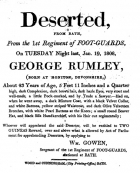
Wellington's Soldiers in the Napoleonic Wars
ArticleClick to view -
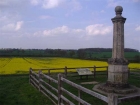
Presenting Naseby
ArticleClick to view -
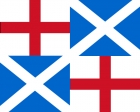
The Creation of the United Kingdom of Great Britain in 1707
ArticleClick to view -

Poetry of the Industrial Revolution in the West Midlands c.1730-1800
ArticleClick to view -

The Slave trade and British Abolition, 1787-1807
ArticleClick to view -

Popular revolt and the rise of early modern states
ArticleClick to view -

A Pirate of Exquisite Mind: The Forgotten William Dampier
ArticleClick to view -

Thomas Muir and the 'Scottish Martyrs' of the 1790s
ArticleClick to view -

George III & America
ArticleClick to view -

The first trans-Atlantic hero? General James Wolfe and British North America
ArticleClick to view -

'Right well kept': Peterborough Abbey 1536-1539
ArticleClick to view -

The Casket Letters
ArticleClick to view -

Mr Adams' Free Grammar School
ArticleClick to view -
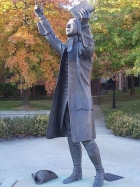
John Wesley at 300
ArticleClick to view -

John Knox and womankind: a reappraisal
ArticleClick to view -

Recycling the Monastic building: The Dissolution in Southern England
ArticleClick to view -

Religion and Science in the Eighteenth Century
ArticleClick to view

